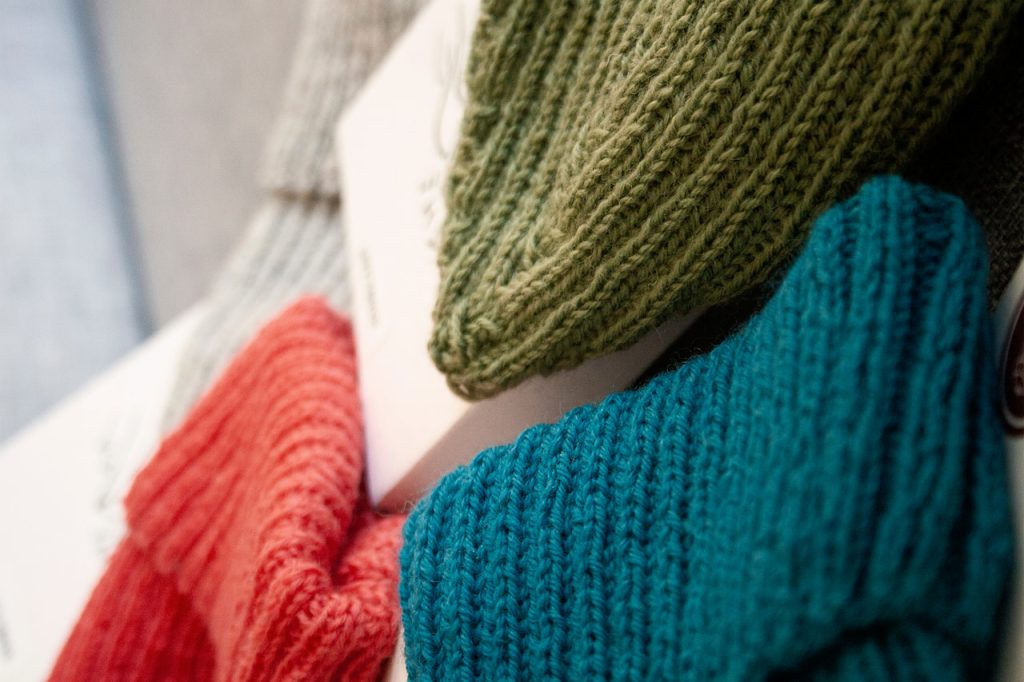
The one, single most important thing that you can do is to RESEARCH BEFORE YOU BUY.
See a lovely shirt and want to buy it? Pull out your phone and look up whether it may be contributing to slavery, before spending your dollars on it.
It can very challenging to know for sure that a product is slavery-free, Here are our Top 7 Tips to make it easy.
CHECK OUT THE GOOD ON YOU APP
Many big and small brands are working hard to root out slavery and other human rights abuses. By supporting brands that make efforts to protect labour rights, we are encouraging more companies to follow suit.
An easy way to find them is to use the Good On You app. This app rates how well a company is doing in three areas, “Planet”, “People” and “Animals”.
It’s no surprise that companies that fare well on “People” also tend to do well with “Planet” and “Animals.” So you can hit three birds in one stone!
Simply search a brand name on the app. You can also check out their website.
KEYWORD SEARCH
If a brand that you’re interested in does not appear in the Good On You app, you can see if any journalists have discovered something.
To quickly see if the brand has ever been uncovered in wrongdoing, in your search, type the brand name and then a broad, negative word such as “scandal” or “sweatshop”.
(Note that journalists sometimes may not have used the words “human trafficking” and “modern slavery” in their articles, even though labour abuses may constitute trafficking and slavery, so using broader terms help you find more information.)
If nothing comes up in your search even after entering a negative word, you can feel a bit more assured. At least this brand is not a known offender. It may even have taken steps to audit supply chains and prevent scandals in the press, which is a first baby step towards sustainability.
CHECK CORPORATE SOCIAL RESPONSIBILITY INFORMATION
If you are really devoted to a single brand and want to learn more, you can go to a brand’s website and look for their Corporate Social Responsibility section.
Does the brand simply list community projects that it has sponsored, or does it go further and mention its commitment to human rights in its supply chain?
LOOK FOR CERTIFICATION
As the trend for sustainability grows, many certifications schemes have appeared.
Here and here are two lists of certifications for garments.
Many certs aren’t obviously about labour standards, for example environmental ones, but actually also keep slavery out of supply chains. For example, the Global Organic Textile Standard certifies a product to be organic, but also imposes social responsibility standards to ensure that workers are not subjected to forced labour.
To gain certifications, companies have to subject their supply chains to some form of external monitoring, which makes it much more unlikely for slavery to go unnoticed.
DISCOVER IDEAS LIKE SLOW FASHION AND THE CAPSULE WARDROBE
Explore ideas like Slow Fashion or Capsule Wardrobe, which are about making small lifestyle changes with big sustainability impact.
Slow Fashion is a concept to counter Fast Fashion. By being slow and thoughtful in how we buy and wear clothes, we can be sustainable and also feel happy and wholesome with the clothes you already own.
The Capsule Wardrobe is a wardrobe with a small number of pieces of clothing. It emphasizes quality over quantity. Instead of being dictated by trends and feeling pressure to buy clothes to fit trends, you only own and buy items that reflect your personal style. By sticking to a consistent colour palette, you can make endless combinations. Here’s an introductory video about this.
SUPPORT SOCIAL ENTERPRISES AND SUSTAINABLE BUSINESSES
There are social enterprises that you can support. Some of them employ survivors of human trafficking and modern slavery.
Eden Ministries sell jewellery in Hong Kong made by survivors in other countries, including Myanmar. Here’s their website and their Hong Kong Facebook page.
Also check out Freedom Bound for T-shirts and other casual wear.
There are many more out there and we encourage you to search for them.
START WITH THE BASICS
Start by buying your basic items from good brands, like socks and T-shirts – those are the easiest to find. You don’t have to change all of your wardrobe straight away!
These are our 7 tips. We hope you’ve enjoyed them and feel inspired to make a change in your wardrobe!
Have something to add? Tell us on our Facebook Page.
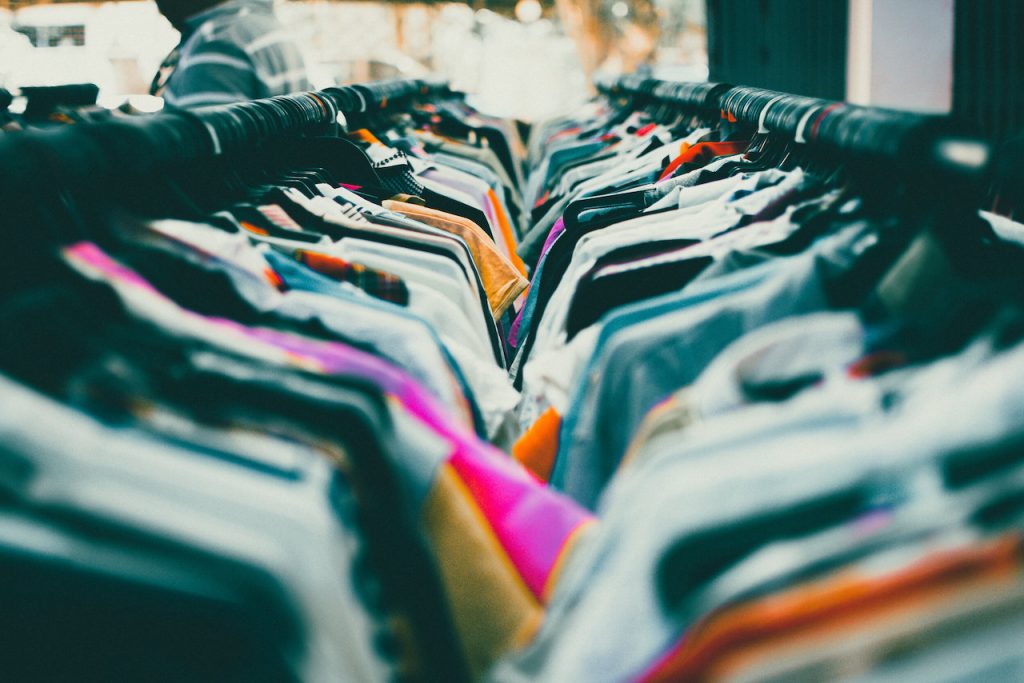
SHOPPING SUSTAINABLE MYTH
IT COSTS MORE TO SHOP SUSTAINABLY?
TRUTH: NO, IT DOESN’T.
You cannot tell whether a piece of clothing is ethical and sustainable just from the price tag. Ethical and sustainable products come in all price ranges, including some that are very affordable, at about the same prices as those from Fast Fashion brands.
On the other hand, there are luxury brands (a product perhaps worth several months of your salary) that were found to have weak labour standards and opaque supply chains.
If you are trying to have a more sustainable lifestyle, choosing quality over quantity, or even trying out Slow Fashion or making a Capsule Wardrobe, chances are that you may save a lot of money. That is because you buy less clothes that are only worn very few times before being forgotten or thrown away.
SHOPPING SUSTAINABLE MYTH
IF IT’S ‘MADE IN’ A DEVELOPED COUNTRY, IT’S PROBABLY SLAVERY-FREE.
TRUTH: NO, THE LABEL DOESN’T TELL YOU.
The “Made In” label tells you very little about labour rights in the supply chain. It only tells you where the last stage of production took place. For example, a shirt can say “Made in France”, but the cotton can be picked by a child in Ukbekistan, the fabric woven by a Uighur women in forced labour in China, buttons and threads can come from elsewhere and then finally, the shirt is finished in France. The label tells one story, but beyond the label, the entire supply chain can be full of human trafficking, modern slavery and other human rights abuses.
Conversely, if a label says “Made in Bangladesh”, that does not automatically mean that people are exploited or enslaved. Every country has good manufacturers, bad manufacturers and those in between. A good manufacturer can be providing good jobs in developing countries where they are most needed.
SHOPPING SUSTAINABLE MYTH
I SHOULD AVOID CLOTHES FROM BIG BRANDS.
TRUTH: NO, THAT IS NOT EXACTLY TRUE.
You may have heard of news about big brands using sweatshops. Does that mean we should stick to small boutiques and clothes without well-known brands? Not exactly.
In small shops, if the garment in front of you does not have a recognizable brand, it can be difficult to find information about how it was made, unless the shop you’re in offers this information to you. That does not necessarily mean there is a problem, it simply means that we don’t know.
With big brands, not all of them are created equal. Many big companies have systems to ensure labour standards, such as having third-party auditing. Others are not as transparent or accountable. Check out our tips on how to tell them apart.
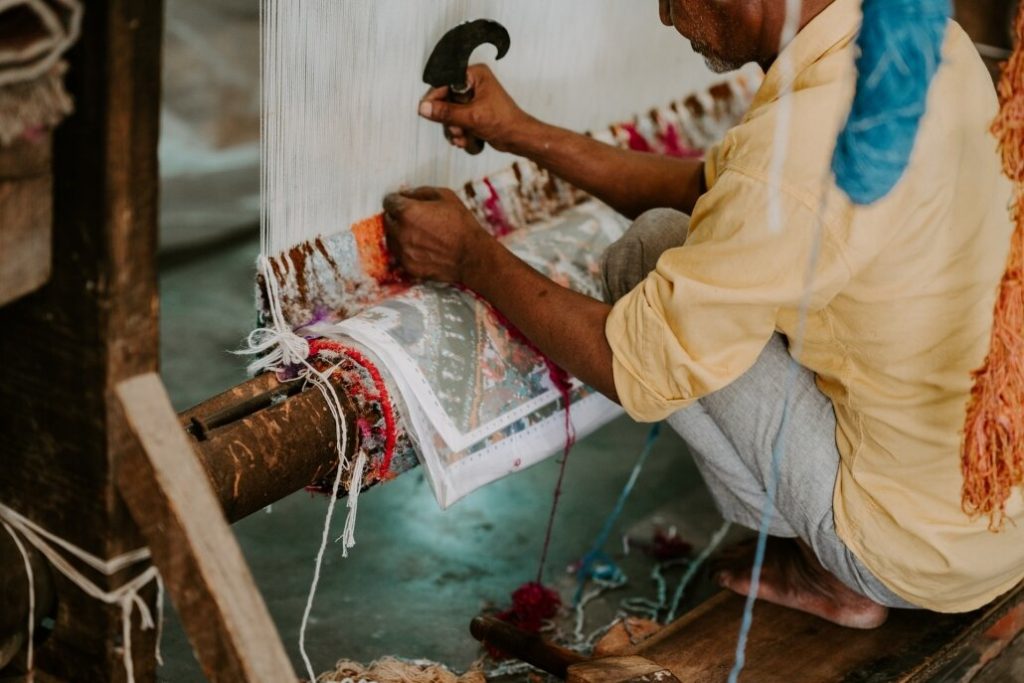
Human Trafficking is the second largest international crime. There are an estimated 40 million people in Modern Slavery today. No country, city, or industry is immune to it, even the fashion industry.
Slavery can occur on farms, in factories and in homes. For example, forced labour and child labour have been found on cotton farms in Uzbekistan and Pakistan. More recently, concerns have been raised over accusations of forced labour in garment and textiles factories in Xinjiang, China. Evidence of forced labour have been accumulating, including in this research paper.
While factories are subject to labour regulations, clothes are also made in homes or informal settings where it is difficult to impose regulations and protect workers. For example, a report in 2019 exposed widespread forced labour, bonded labour and child labour in India’s home-based garment sector.
Are you supporting slavery without knowing it? For more on this, here’s a podcast on this question.
FAST FASHION: WHAT IS IT?
You may have heard of the term “Fast Fashion”.
Fast fashion is a business model that markets trendy clothing which are cheap and disposable. The clothes go out of trend very quickly and then new trends are marketed to consumers.
Needless to say, to make this business model work, labour costs must be brought as low as possible, making conditions for workers ever more exploitative. Fast Fashion also has a terrible impact on the environment.
Here’s an introductory video about Fast Fashion and Greenpeace’s Fast Facts on Fast Fashion.
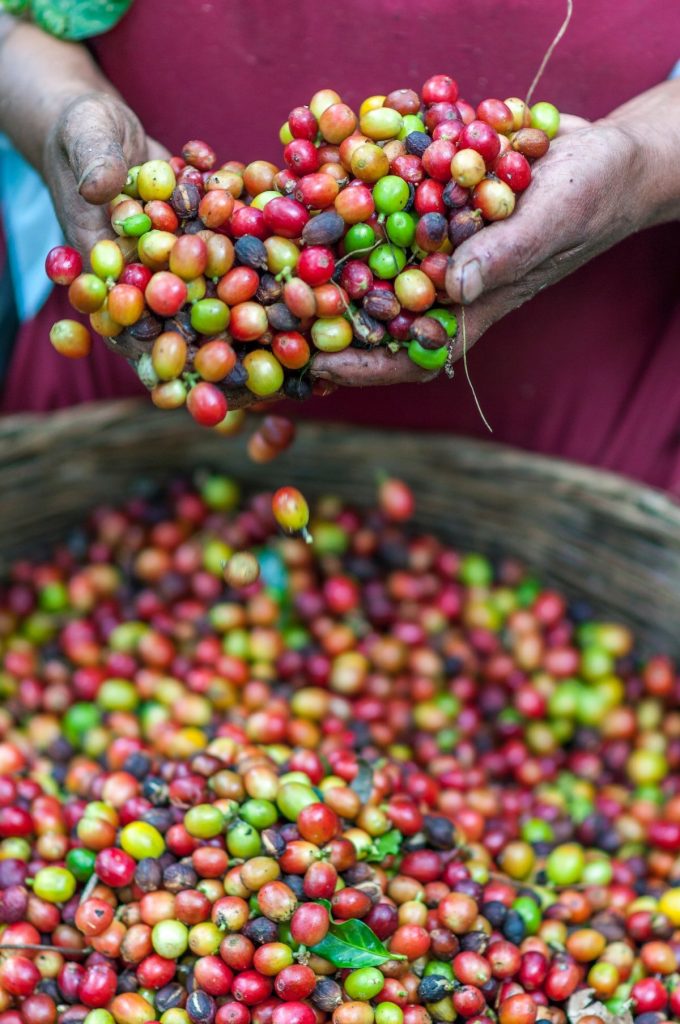
Coffee and cocoa beans, from being delicacies enjoyed by natives of the southern world, to being goods which colonizers extracted and profited from, has a long history tainted by greed and aggression. Today, its history repeats in the form of Modern Slavery.
The founders of Cacao, Conspiracy Chocolate and Impact Berry, as chocolate-lovers and coffee-lovers, put extra care into every link of the supply chain. The business models they created not only respond to consumer demand for ethical, sustainable products, but also gives back to farmers and producers, breaking the cycle of exploitation.
CONSPIRACY CHOCOLATE:INSISTENCE ON QUALITY AND ETHICS
Driven by her love of chocolate, the founder of Conspiracy Chocolate, Celine Herren’s quest for cocoa of a rare quality brought her to small farms in the Đắk Lắk Province of Vietnam, where she built a mutually respectful, symbiotic relationship with farmers.
While large companies require consistency in their products, artisan chocolatiers want the opposite. Conspiracy Chocolate partners with small farms and uses single-source cocoa beans, whose quality depends on the atmospheric factors, such as humidity and sunshine, and the care that farmers give them. “Farmers are key to the chocolate-making process.”
Large brands monopolize the market and buy the largest possible quantity of cocoa beans at the lowest possible prices. In this race to the bottom, small farmers lack bargaining power and earn meagre incomes for their sweat and toil. The farmers that partner with Conspiracy Chocolate produce such a small quantity that they cannot even obtain Fair Trade certification, but their cocoa beans are of exceptional quality. Celine visits the farms to learn about the crops, from the genes and health of cocoa trees to how the beans are fermented and dried, and collects information to increase the transparency of the supply chain. The equal relationship between farmers and producer ensure the cocoa beans’ high quality.
The renaissance of artisanship testifies to the fact that people are no longer content with characterless, standardized, mass-produced goods. With a reverence for nature, artisanal chocolatiers attach special importance to the role farmers play, resulting in ethical, quality production.
CACAO: GUILT-FREE CHOCOLATE
“Obviously slavery is unequivocally unacceptable, but we really love chocolate. The solution was to make our own.” The founder of Cacao, a local Hong Kong luxury chocolate brand, Carolyn noticed that the mainstream chocolate industry has been long been criticized for using child labour. Left with no choice as a consumer, she began making her own chocolate. Made with conscience and love, her chocolate tasted better than its mainstream counterparts, so she decided to market it and share it with the public.
Cacao chocolate is “guilt-free”, which means it is produced without the taint of human trafficking or deforestation. Carolyn searched far and wide for the right sources and vendors. The chocolate is made with sustainably grown cocoa and sugar, the packaging is plastic-free and recyclable, and the deliveries are made by a carbon-neutral company with electric vehicles.
Increasing numbers of consumers are realizing that their purchasing choices are votes for what kind of future society they want. Passionate about fighting human trafficking, Carolyn enjoys interacting with customerss in chocolate-tasting workshops, raising ethical consumer awareness while sharing rich, delicious chocolate. Customers are guided through chocolate-tasting and informed about the issue of slavery in the production of cocoa.
Carolyn enjoys having face-to-face conversations about Modern Slavery and Ethical Consumerism. Workers and the environment often end up paying the real costs of cheap products. If our shopping is to be “guilt-free”, more people must become conscious of the problem of slavery in mainstream industries, vote with their dollars and incentivize companies to follow ethical standards, which will drive systemic change.
IMPACT BERRY:CREATING SHARED VALUE WITH COFFEE
Various forms of slavery continue to exist in unseen corners of the world. As consumers, we often do not know who produced our food, nor how many pay heavy costs in order to supply our food. Impact Berry was founded by Timo and Sonja, who were exploring ways to make life more meaningful. “We wanted to build a brand that cares deeply about how food is produced and who is producing it along the whole supply chain.”
Impact Berry is one of the key drivers of the idea of “Creating Shared Value”. When a tsunami hit Indonesia, although farmers survived, their livelihoods needed rebuilding. In 2018, Timo and Sonja visited the earthquake zones of Indonesia and were greatly impressed by the local communities there. They decided to produce and market coffee from these areas, supporting livelihoods in a sustainable way.
Coffee brings people together across borders. In addition to putting a lot of care into the production process and the quality of coffee, Impact Berry partners with local organizations to implement education and environmental protection programmes, giving back to coffee-growing communities. United by their love of coffee, people from different cultures and backgrounds come together to inspire each other and find endless new possibilities to make a difference.
A product supply chain is made up of many real human beings, whose lives can be greatly impacted by the choices of consumers. If consumers are aware of this fact and make each choice consciously, they can make a big difference in the world.
Ethical Production does not only create slavery-free brands, it bears witness to the power of kindness. A journey of a thousand miles begins with a single step. Small changes can have a ripple effect. The new business models created by brands like these can change the world for future generations.
Local organisations can significantly assist with service provision, integration…
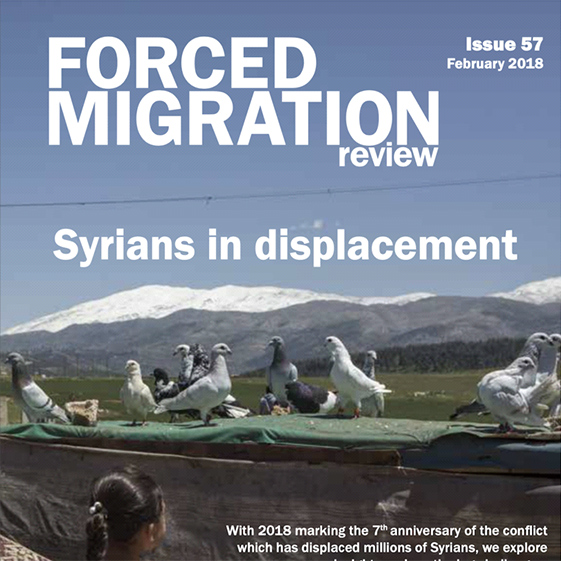
本詞典共載有185條常見人口販運相關詞彙及解釋。除英語詞語外,亦附有廣東話翻譯和俚語解釋等。詞典由多名本地的前線工作者、國際組織的顧問、律師和大學講師等協助修訂及編輯。 我們認為若要令有關反人口販運的討論有意義,必須在討論的過程當中使用一套令公眾明白的共同語言。這本英粵詞典是香港首本同類的詞典,出版目的旨在增進本地廣東話群體對人口販運的認識和了解。詞典當中的廣東話俚語解釋,例如「賣豬仔」、「放蛇」和「黑工」等,是為了幫助讀者明白人口販運與日常生活息息相關。
This glossary currently contains 185 English human trafficking terms and counting, as well as Cantonese slang phrases which are commonly used and their explanations. This glossary is the culmination of hard work by the STOP. team, alongside numerous other individuals passionate in the fight against human trafficking. It has been thoroughly reviewed and edited by experienced practitioners, academic including university professors and lawyers from Hong Kong. Our aim in producing and publishing this glossary is to educate the public shedding light and providing standardized definitions of human trafficking terms for the Cantonese speaking community. We believe this glossary is the beginning of the conversation.
「香港人口販運英粵詞典」Human Trafficking Glossary of Terms Used in Hong Kong by stophk – Issuu: 「香港人口販運英粵詞典」Human Trafficking Glossary of Terms Used in Hong Kong